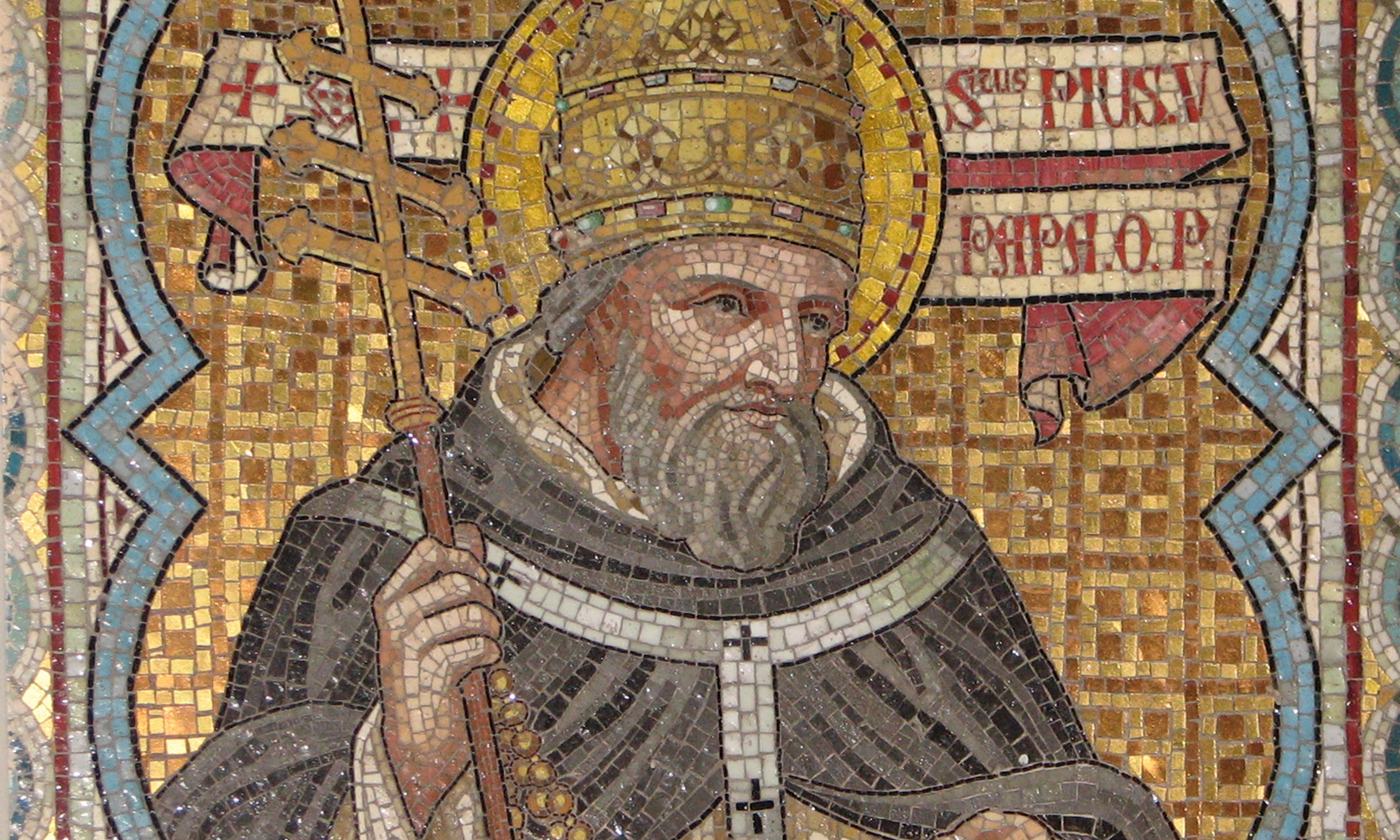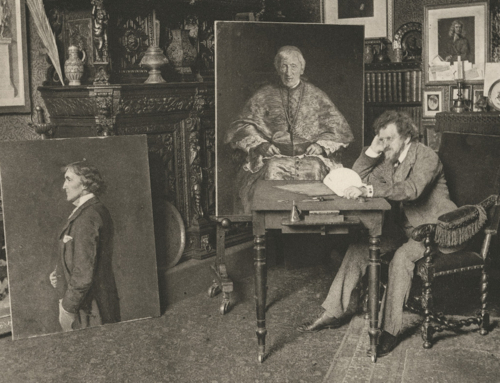For many generations, especially throughout the Middle Ages and Renaissance, several popes had negative reputations on account of their sinful lifestyles or corrupt governance. While still possessing the authority of the Vicar of Christ on earth, these popes were not living up to the life of holiness that Christ expected of Peter and his successors.
One exception in the midst of this chaos was St. Pius V, whose feast we celebrate today. A Dominican friar who reigned from 1566 to 1572, Pius made his mark in a relatively short papacy. He promulgated the catechism and missal that were formulated by the Council of Trent. He called for the praying of the Rosary when Christian naval forces were threatened by the Turks during the Battle of Lepanto. He excommunicated Queen Elizabeth I when she steered England back toward Protestantism. A legend also attributes to Pius the origin of why the pope wears white—he would not remove his white Dominican habit once elected pope!
For all that he accomplished as pope, the Church venerates him as a saint because of his virtue and holiness. Alongside his accomplishments, Pius was known to live a very austere life, rejecting many of the luxuries to which popes had been accustomed in his time. While he may have been elected the Successor of St. Peter, he never stopped being a humble Dominican friar. Prayer and penance preceded any work that he did in governing the universal Church. G.K. Chesterton, in his famous poem, Lepanto, described St. Pius V in this way:
The Pope was in his chapel before day or battle broke.
It can be very tempting to view our relationship with God, or our service to the Church, from a functional angle. “What am I doing? Can I make this better?” are some questions we may ask. Despite our best efforts, it is God who begins every good work in us, and it is he who brings it to completion. According to Lumen gentium, “it is evident to everyone, that all the faithful of Christ of whatever rank or status, are called to the fullness of Christian life and to the perfection of charity” through a life of holiness (40). By our union with Christ through the regular reception of the sacraments, we come to share in his holiness. Only then are we properly disposed to carry out through action what the Holy Spirit places upon our hearts.
We recognize Pius V as a saint for his life of profound holiness. He was a shining star who turned to God in charity and humility in the midst of a world of darkness. His life of holiness, prompted by the movement of the Holy Spirit, led him to do great things for the Church, the impact of which remains with us to this day. His example directs us to a life in Christ. Through lives rooted in prayer and the sacraments, we too are made ready to face whatever struggles, difficulties, or tasks that lie ahead. May St. Pius V be our model, helping us to navigate through the voyage of life.
✠
Photo by Fr. Lawrence Lew, O.P. (used with permission)







